
Hardware Giant Ordered To Stop Facial Recognition Tech Use Releases Horrific Footage In Response
Australian hardware retail chain Bunnings was found to have breached Australians’ privacy by using facial recognition technology (FRT) in 63 stores between 2018 and 2021. The Australian Privacy Commissioner ruled that the retailer collected sensitive data without consent. Bunnings has since defended the practice, arguing it was essential for safety and crime prevention.
- Bunnings breached privacy by using facial recognition tech in 63 stores without consent.
- The Australian Privacy Commissioner ruled that Bunnings' use of FRT violated privacy laws.
- Bunnings defended FRT for safety and crime prevention, releasing footage of violent incidents.
Bunnings released security footage of staff members being threatened and assaulted in response to findings from Australia’s privacy watchdog that the company breached the country’s privacy, News.com.au reported on Tuesday (November 19).
The retailer reportedly tested FRT in 63 stores in Victoria and New South Wales from November 2018 to November 2021.
As a result, the Australian Privacy Commissioner ruled that Bunnings’ use of FRT breached privacy laws by collecting sensitive information without customers’ consent.
Australian hardware retail chain Bunnings was found to have breached Australians’ privacy
Image credits: realestate
The Commissioner found that the technology disproportionately interfered with the privacy of all customers entering the stores, not just high-risk individuals, and that Bunnings failed to adequately inform people their data was being collected.
Consequently, Bunnings was ordered to cease using FRT and to stop collecting facial images without consent.
In response to the ruling, Bunnings managing director Mike Schneider defended the technology in a press release published on Tuesday.
Image credits: bunnings
Schneider emphasized that the technology was used with strict controls and helped reduce incidents in trial stores.
“We had hoped that based on our submissions, the Commissioner would accept our position that the use of FRT appropriately balanced our privacy obligations and the need to protect our team, customers, and suppliers against the ongoing and increasing exposure to violent and organized crime, perpetrated by a small number of known and repeat offenders,” Schneider said.
According to the manager, the Commissioner acknowledged that FRT had the potential to protect against serious issues, such as crime and violent behavior.
It was condemned for using facial recognition technology (FRT) in 63 stores between 2018 and 2021
Image credits: news.com.au
“This was the very reason Bunnings used the technology,” Schneider explained. “Our use of FRT was never about convenience or saving money but was all about safeguarding our business and protecting our team, customers, and suppliers from violent, aggressive behavior, criminal conduct and preventing them from being physically or mentally harmed by these individuals.”
As per the official statement, Bunnings trialed FRT in select Victoria and New South Wales stores from 2018 to 2021 as part of broader security measures aimed at reducing theft and ensuring customer and staff safety.
The technology targeted a small group of repeat offenders responsible for most incidents and significantly reduced theft and violent encounters compared to stores without FRT.
Image credits: news.com.auv
Schneider revealed: “Every day we work hard to earn the trust of our team, suppliers, and customers and this includes keeping people safe in and around our stores.
“It’s our highest priority and a responsibility we take very seriously. Across the retail sector, abuse, threat, and assaults in stores continue to rise, with a 50 percent increase at Bunnings last year alone.
“Statistics don’t convey the real impact it has on the lives of our team and our customers, and we provided the OAIC [Office of the Australian Information Commissioner] with numerous examples of violent and abusive situations in our stores.”
The Australian Privacy Commissioner ruled the retailer collected sensitive data without consent
Image credits: news.com.au
Bunnings expressed deep disappointment with the Commissioner’s ruling, emphasizing the importance of FRT in protecting staff and customers from violence and abuse.
The company argued that ensuring safety, even for a single person, justifies the use of FRT, which helps identify repeat offenders and prevent incidents.
Bunnings also noted ongoing consultations with unions and governments to address the growing challenges faced by frontline workers and seek better legislative protections.
Image credits: news.com.au
FRT was part of a broader security strategy, supported by training, resources, and strict access controls to ensure accurate identification, Schneider said.
The company updated its privacy policy and store signs during the trial to clearly inform customers about the use of FRT.
The press release further highlighted that theft and violent behavior were major concerns, with a significant portion of incidents involving repeat offenders, and stressed that customer privacy was always protected throughout the process.
Bunnings has since defended the practice, arguing it was essential for safety and crime prevention
Image credits: news.com.au
“We would never act in a way that we believe would jeopardize customer privacy,” Schneider concluded.
Australian Privacy Commissioner Carly Kind said despite the efforts being “well-intentioned” to address unlawful activity, the technology was not justifiable, News.com.au reported.
Kind said in a statement on Tuesday: “In this instance, deploying facial recognition technology was the most intrusive option, disproportionately interfering with the privacy of everyone who entered its stores, not just high-risk individuals.”
Image credits: news.com.au news.com.au
The Privacy Commissioner reportedly determined that Bunnings collected facial recognition data from potentially hundreds of thousands of individuals without their consent and failed to properly inform them.
Bunnings has paused the use of the technology and plans to seek a review of the ruling, asserting that facial recognition is essential for safety.
Previously released CCTV footage showed violent incidents at Bunnings stores, including a man threatening staff with a knife, hammer, and even a gun, as well as staff being assaulted.
Bunnings released security footage of staff members being threatened and assaulted in response to findings from Australia’s privacy watchdog
Image credits: news.com.au
During the trial, FRT was used to identify and remove individuals with prior records of abusive or criminal behavior.
Commissioner Kind reportedly said facial images were sensitive information because “we can’t change our face” and therefore, consent was generally needed to collect these images, “even if briefly.”
She added: “This decision should serve as a reminder to all organisations to proactively consider how the use of technology might impact privacy and to make sure privacy obligations are met.
“Organisations should be aware that ensuring the use of emerging technologies aligns with community expectations and regulatory requirements is high among our priorities.”
On Tuesday, the OAIC released a new privacy guide for businesses using FRT. The non-profit consumer advocacy organization, which exposed Bunnings, Kmart, and The Good Guys’ use of the technology in 2022, called the Privacy Commissioner’s ruling a “landmark decision” but stressed that more action is needed.
Rafi Alam from Choice criticized Australia’s outdated privacy laws, noting that the technology’s use has only increased during the investigation.
In 2022, it was revealed Bunnings was one of a number of retailers using FRT in stores to check the face of every customer entering the store against a database of banned customers, The Guardian reported on Tuesday.
FRT captures images of people’s faces from video cameras – such as CCTV footage – as a unique faceprint that is then stored and can be compared with other faceprints, according to The Guardian.
“Taking care of your staff and keeping them safe is important,” a reader commented
Poll Question
Thanks! Check out the results:
17Kviews
Share on FacebookExplore more of these tags
Bunnings seem to be missing the point of this ruling. Nobody has said that they were using the technology for nefarious means, or as a workaround to cut costs etc. the commissioner even started that they agreed they had done it with good intentions. The issue is that personal data, especially facial scans, are highly regulated due to their sensitive nature and risk of misuse. The issue here was that they were not getting the consents or making the disclosures required by law to gather that data. It's not about protecting criminals, it's about protecting the rest of the populations data, and having controls in place that anyone looking to use that data needs to follow
The entire point has to do with Bunnings not informing the public and allowing them to choose to give their informed consent to being seen on such tech, or to not patronize their store ever again because of it. Basically, had they advertised the fact that they were using—-or even just testing—- facial recognition technology in their stores, and repeated the information by posting it in big, brightly colored, hard to miss letters and easily understood, crystal clear language on the front door and everywhere else it couldn’t be missed, then they would have given the general public their right to consent to it or not. The CCTV in public places is made very clear in the same way, signs everywhere and people being told right off the bat where the cameras are, so there’s an immediate expectation of it by anyone going to those areas, thereby giving the public the choice to go there or not. Advertising it also can (not always will, but often will, because most crooks are not smart) become a deterrent for all but the most ballsy (or downright thickheaded) criminals, as they would know they are being watched and recorded with the most up to date tech available.
Load More Replies...Let’s be clear, a) if Bunnings really cared about the safety of their staff, they’d hire security guards (posted a $2.25 BILLION dollar profit last year, so it’s not as though they can’t afford it) and b) FRT is a flawed technology- so much so, even in the USA where it’s been used for well over a decade, it’s still not grounds for a warrant and is inadmissible in court! This is a disgraceful attempt by a multibillion dollar conglomerate to guilt people into surrendering their civil rights so that the company can exploit them for financial gain in the future!
That one person stealing Ryobi tools while brandishing a knife makes no sense. At least go for Milwaukee or Bosch if you're going to throw your freedom away, amateur.
Hey, I like my Ryobi, probably because it was cheaper and I didn’t steal them.
Load More Replies...Bunnings seem to be missing the point of this ruling. Nobody has said that they were using the technology for nefarious means, or as a workaround to cut costs etc. the commissioner even started that they agreed they had done it with good intentions. The issue is that personal data, especially facial scans, are highly regulated due to their sensitive nature and risk of misuse. The issue here was that they were not getting the consents or making the disclosures required by law to gather that data. It's not about protecting criminals, it's about protecting the rest of the populations data, and having controls in place that anyone looking to use that data needs to follow
The entire point has to do with Bunnings not informing the public and allowing them to choose to give their informed consent to being seen on such tech, or to not patronize their store ever again because of it. Basically, had they advertised the fact that they were using—-or even just testing—- facial recognition technology in their stores, and repeated the information by posting it in big, brightly colored, hard to miss letters and easily understood, crystal clear language on the front door and everywhere else it couldn’t be missed, then they would have given the general public their right to consent to it or not. The CCTV in public places is made very clear in the same way, signs everywhere and people being told right off the bat where the cameras are, so there’s an immediate expectation of it by anyone going to those areas, thereby giving the public the choice to go there or not. Advertising it also can (not always will, but often will, because most crooks are not smart) become a deterrent for all but the most ballsy (or downright thickheaded) criminals, as they would know they are being watched and recorded with the most up to date tech available.
Load More Replies...Let’s be clear, a) if Bunnings really cared about the safety of their staff, they’d hire security guards (posted a $2.25 BILLION dollar profit last year, so it’s not as though they can’t afford it) and b) FRT is a flawed technology- so much so, even in the USA where it’s been used for well over a decade, it’s still not grounds for a warrant and is inadmissible in court! This is a disgraceful attempt by a multibillion dollar conglomerate to guilt people into surrendering their civil rights so that the company can exploit them for financial gain in the future!
That one person stealing Ryobi tools while brandishing a knife makes no sense. At least go for Milwaukee or Bosch if you're going to throw your freedom away, amateur.
Hey, I like my Ryobi, probably because it was cheaper and I didn’t steal them.
Load More Replies...
 Dark Mode
Dark Mode 

 No fees, cancel anytime
No fees, cancel anytime 



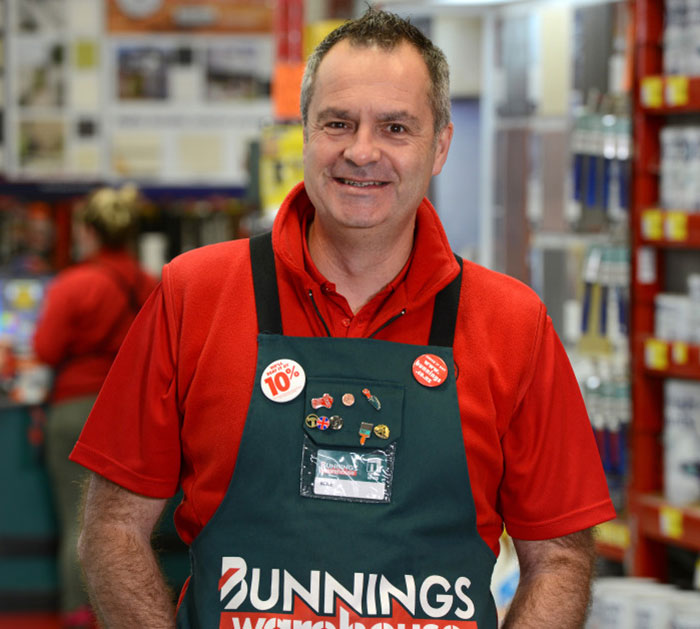
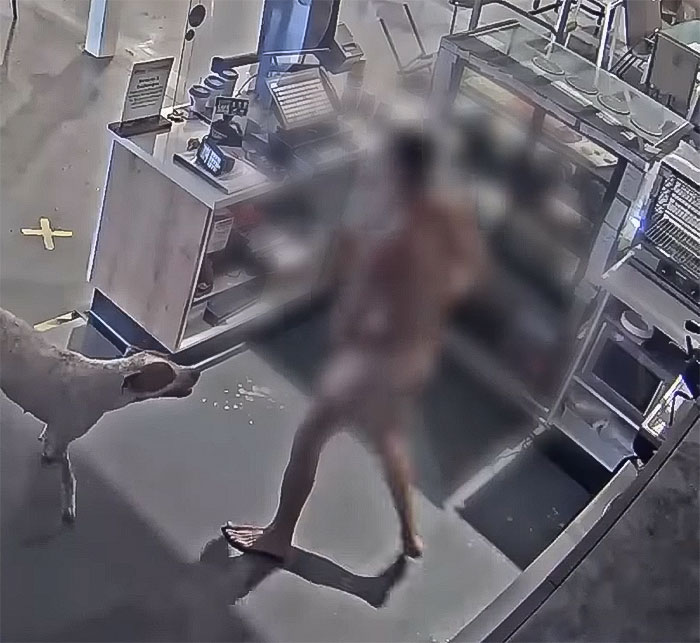



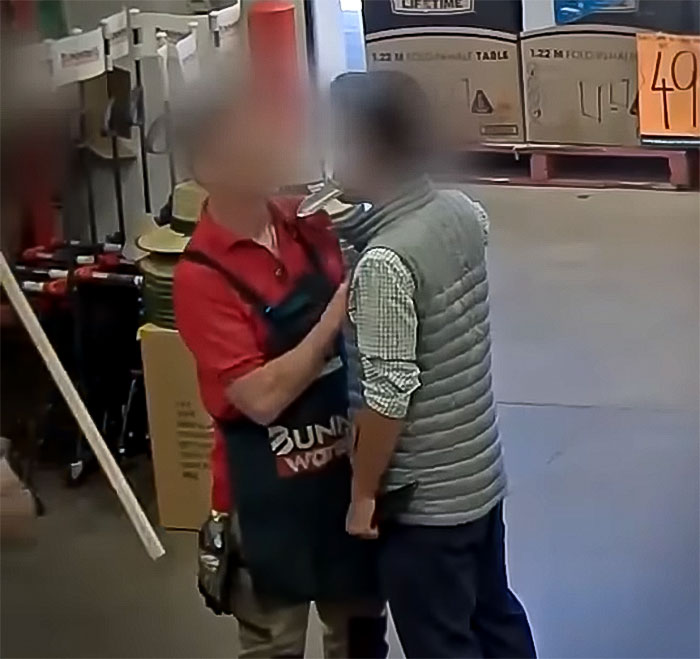
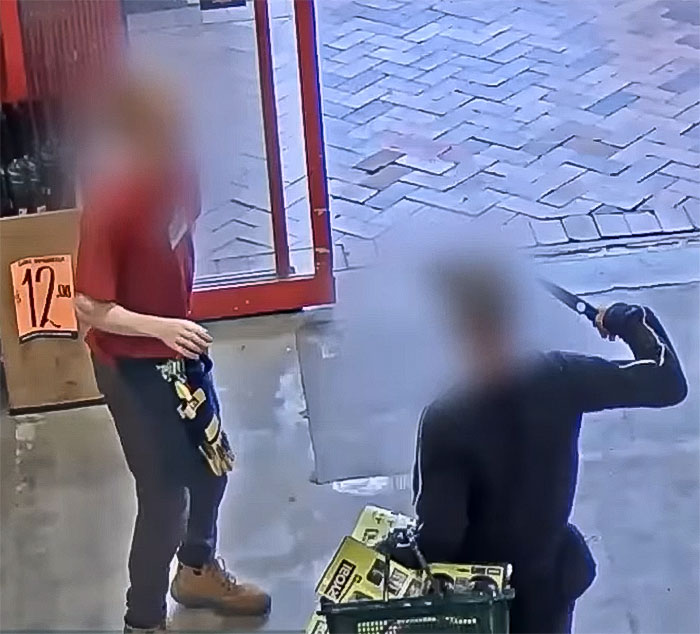
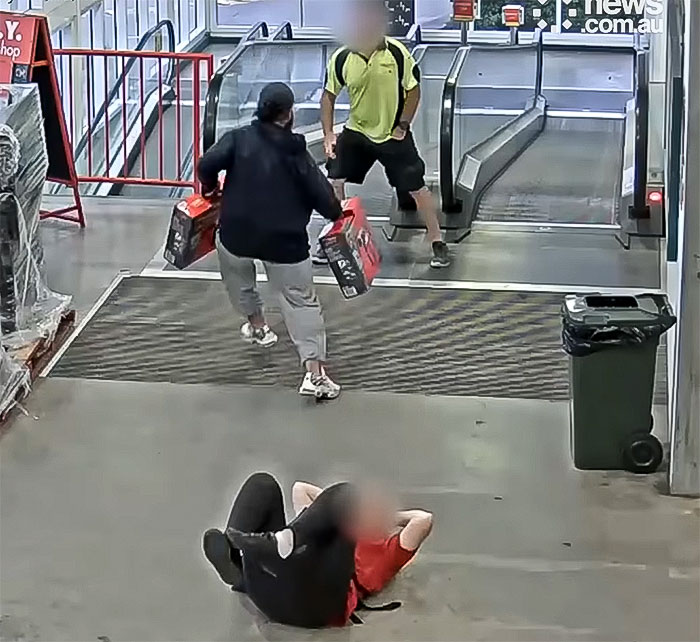











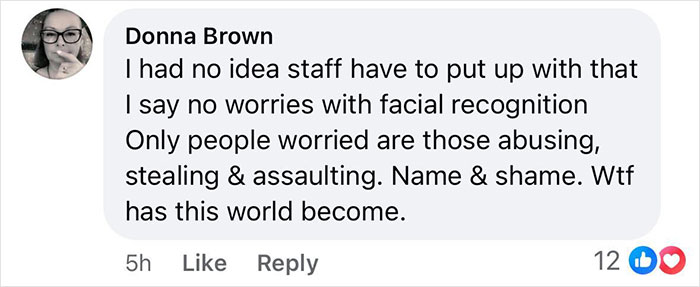
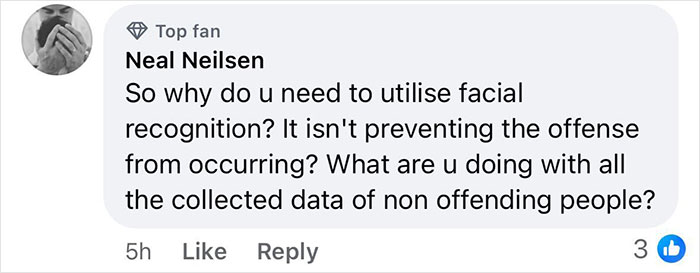






































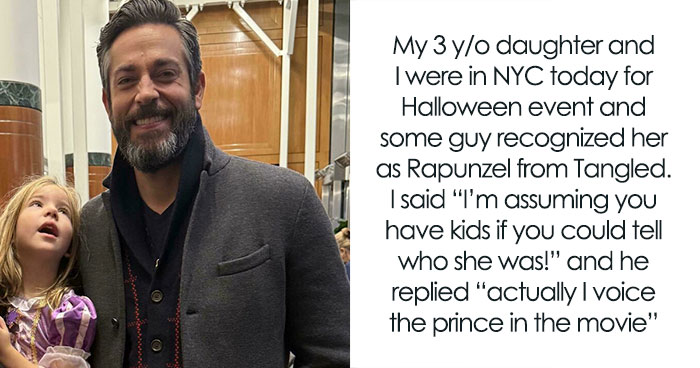
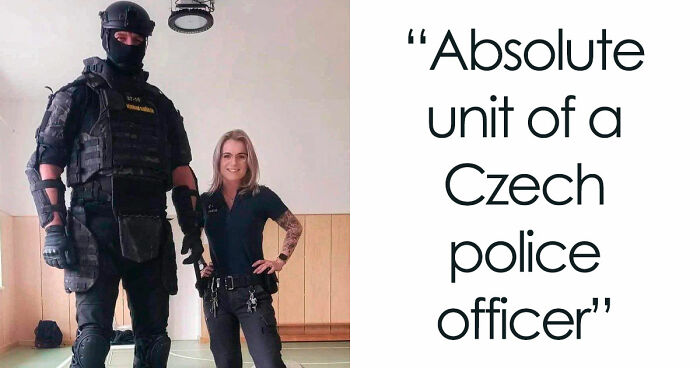






39
40